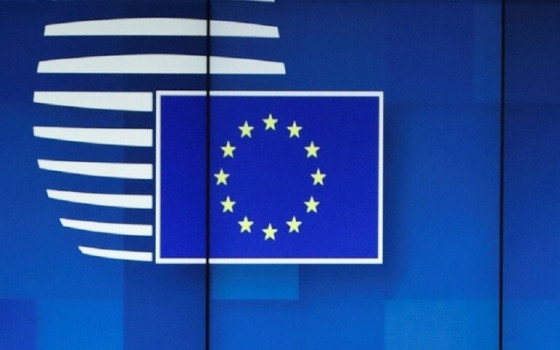
Belarus: EU lists 28 additional individuals for involvement in internal repression

- Europe and Arabs
- Monday , 5 August 2024 10:17 AM GMT
Brussels: Europe and the Arabs
The European Union Council decided today to impose restrictive measures on 28 additional individuals due to their role in the ongoing internal repression and human rights violations in Belarus. According to a European statement distributed in Brussels today, Monday,
Restrictive measures were imposed on two deputy heads of the Main Directorate for Combating Organized Crime and Corruption (HUBAZiK) under the Ministry of Internal Affairs. HUBAZiK is one of the main bodies responsible for political persecution in Belarus, including arbitrary and unlawful arrests and ill-treatment, including torture, of activists and members of civil society.
Today's lists also include various members of the judiciary, namely prosecutors and several judges who have issued politically motivated sentences, including against citizens who protested the rigged 2020 presidential elections, or who simply expressed their views against the Lukashenko regime. In addition, restrictive measures are also imposed on the heads of various correctional institutions (prisons and pre-trial detention centers).
Finally, a group of long-time supporters of Lukashenka, who have benefited from the regime, were also targeted. They include the general director of the largest state news agency, the Belarusian Telegraph Agency (BelTA), Irina Akulovich; the host of the Senate TV show on STV (СТВ) and the head of the Youth Council of the National Assembly of Belarus, Mykita Rashelovsky; and Lukashenka’s former press service chief and long-time director general of the Belarusian Telegraph Agency, Dmitry Zhuk. These regime propagandists have voluntarily provided the Belarusian public with false information about state repression, disseminated disinformation produced by the Belarusian and Russian authorities, and promoted hatred towards the democratic opposition and civil society.
In total, the EU’s restrictive measures against Belarus now apply to 261 individuals and 37 entities.
The individuals designated today are subject to an asset freeze and EU citizens and companies are prohibited from providing them with funds. Natural persons are also subject to a travel ban, preventing them from entering or transiting through the EU. These sanctions were adopted ahead of the fourth anniversary of the rigged presidential elections in August 2020. In its conclusions of 19 February 2024, the Council expressed deep concern at the deteriorating human rights situation in Belarus and strongly condemned the ongoing campaign of persecution and intimidation against all segments of Belarusian society by the Belarusian regime. It deplored that political prisoners continue to be held in appalling conditions, subjected to torture and ill-treatment, without access to basic health services, and that many of these prisoners have been held for prolonged periods without access to their lawyers and relatives. The EU urges the Belarusian authorities to release immediately and unconditionally all political prisoners and to abolish the death penalty. The Council also strongly condemned the unprecedented level of repression and restrictions on political participation ahead of the parliamentary and local elections held on 25 February 2024.
On 26 February 2024, the High Representative issued a statement following the parliamentary and local elections, condemning the unprecedented level of repression, human rights violations and restrictions on political participation and access to independent media. He stressed that elected parliamentary and local officials in Belarus lacked democratic legitimacy as the conditions for free and fair elections had not been met.
The European Union stands with the people of Belarus and firmly supports the Belarusian people’s quest for a free, democratic, sovereign and independent Belarus as part of a peaceful Europe.
The relevant acts were published in the Official Journal of the European Union.
Since August 2020, the EU has imposed several successive rounds of individual and sectoral sanctions, against those responsible for internal repression and human rights violations in Belarus, and in the context of Belarus’s involvement in Russia’s war against Ukraine. Through these measures, the EU is sending a signal to responsible political and economic actors that their actions and support for the regime and Russia have a price.












No Comments Found